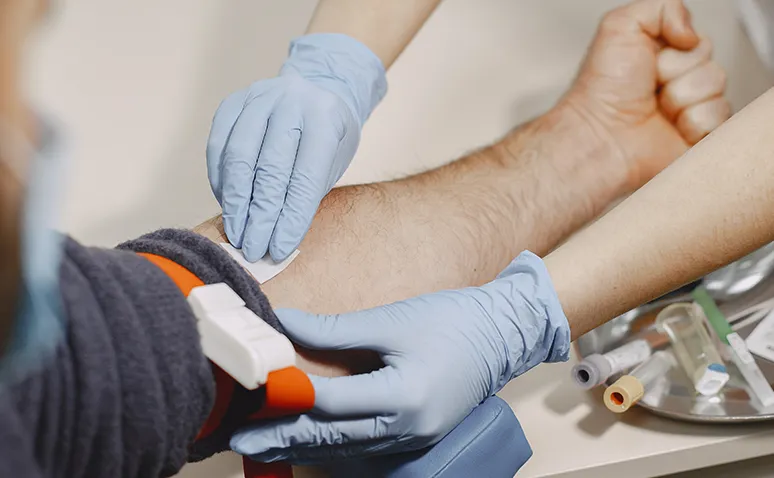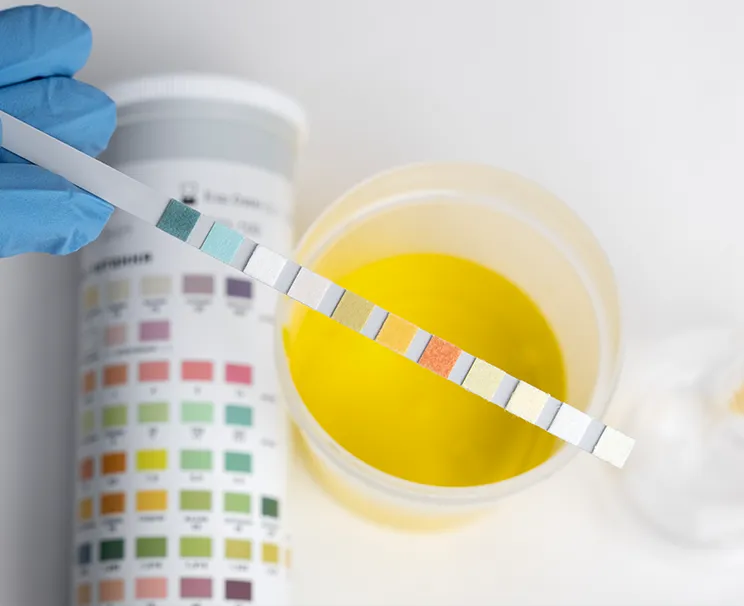Symptoms of low ferritin can manifest as various physical and mental effects due to decreased iron stores in the body. Fatigue, weakness, and lack of energy are among the most common complaints. Symptoms of low ferritin can lead to insufficient production of hemoglobin, which is responsible for carrying oxygen in the blood. This can result in easy fatigue and difficulty performing daily activities.
Symptoms of low ferritin can also affect mental health. Common symptoms include difficulty concentrating, memory problems, and a general sense of mental fog. Symptoms of low ferritin may disrupt sleep patterns and increase stress levels when prolonged. This can severely impact quality of life and may even lead to mental health disorders like depression or anxiety in the long term.
Who is Most Affected by Low Ferritin?
- Women
- Vegans or vegetarians
- Frequent blood donors
- Individuals with intestinal diseases
- People who have undergone stomach surgery or gastric bypass
- Athletes engaging in intense exercise
- Children
- Elderly individuals
- People with chronic illnesses

What are the Symptoms of Low Ferritin?
Ferritin is a key protein that indicates the iron stores in our body. Ferritin levels, measured through blood tests, provide insights into our iron status. Low ferritin levels are associated with iron deficiency anemia and can lead to various symptoms in the body.
A ferritin test is commonly performed in individuals suspected of having iron deficiency. This test helps determine how much iron is stored in the body. Normal ferritin levels vary depending on age, gender, and individual factors, but they are expected to range from 12–150 ng/mL for women and 20–500 ng/mL for men. If these levels are low, symptoms related to low ferritin may appear.
The most common symptoms of low ferritin include chronic fatigue, weakness, dizziness, and shortness of breath. These symptoms are signs of iron deficiency anemia. Iron deficiency anemia occurs due to insufficient production of hemoglobin in the body, which negatively affects oxygen transport to cells. This can make daily activities challenging and lower quality of life.
Additionally, low ferritin levels can cause hair loss, dry skin, and brittle nails. Some individuals may also experience neurological symptoms such as depression and concentration problems. Therefore, it is important to consult a doctor and have a blood test if you experience prolonged fatigue or other symptoms.

Low ferritin is one of the most significant indicators of iron deficiency in the body. When ferritin levels are very low, the body cannot maintain adequate iron stores. This affects hemoglobin production and may lead to anemia. Symptoms such as fatigue, shortness of breath, dizziness, and palpitations may arise due to inadequate oxygen transport to cells.
If untreated, it may adversely affect organ function and weaken the immune system over time. Treatment for low ferritin typically involves dietary adjustments, iron supplements, or, in severe cases, intravenous iron therapy.
While low ferritin does not directly mean anemia, it often indicates iron deficiency anemia in most cases. Iron is necessary for producing hemoglobin, the molecule responsible for carrying oxygen in the body. If ferritin levels are low, there is insufficient iron in the body, paving the way for anemia. However, anemia can also result from factors other than low ferritin levels.
When low ferritin is detected, hemoglobin and other blood parameters should also be considered to diagnose anemia.
Ferritin levels vary based on age, gender, and individual health conditions. To avoid problems related to low ferritin, healthy individuals are advised to maintain levels of at least 12–15 ng/mL for women and 20–30 ng/mL for men. However, the ideal level may be higher depending on iron needs and overall health status.
To increase ferritin levels, consuming iron-rich foods is important. Additionally, pairing these with vitamin C-rich foods can enhance iron absorption. Avoid consuming beverages like tea or coffee immediately after meals as they may inhibit iron absorption. It is also important to note that excessive iron can have toxic effects on the body; therefore, ferritin levels should be monitored under a doctor’s supervision.











